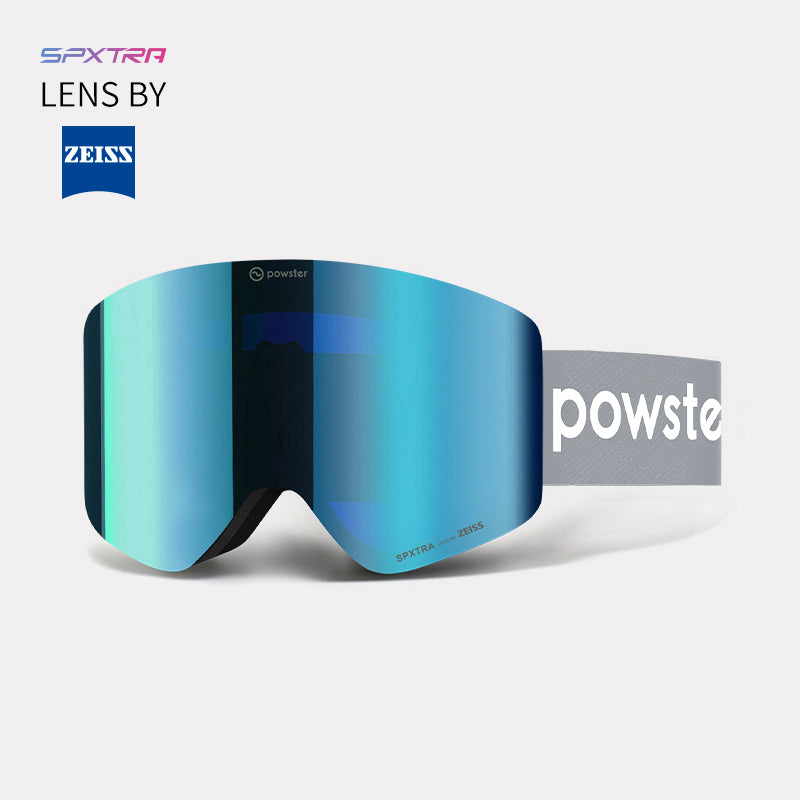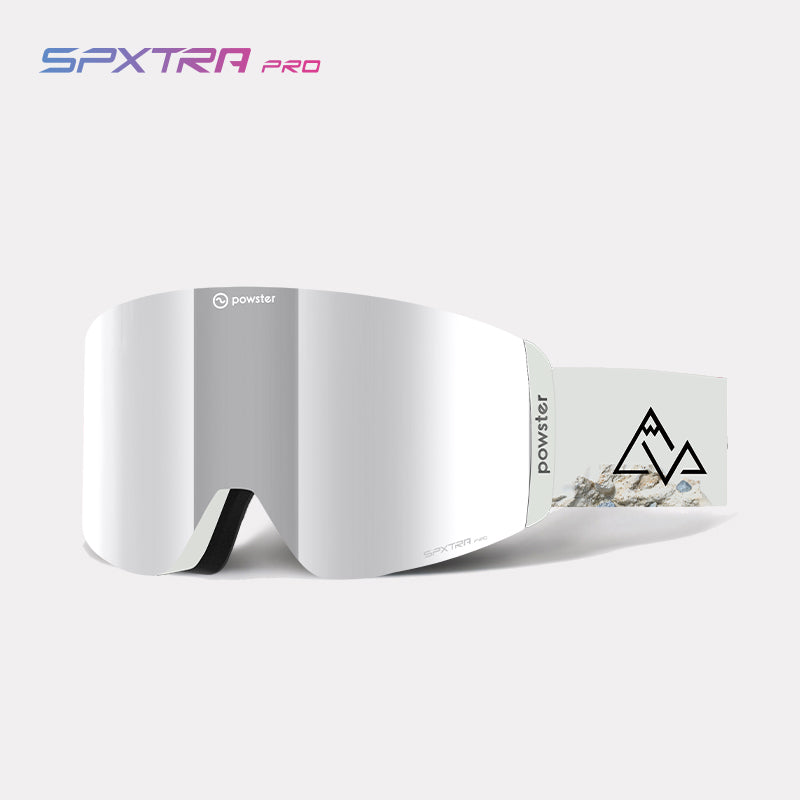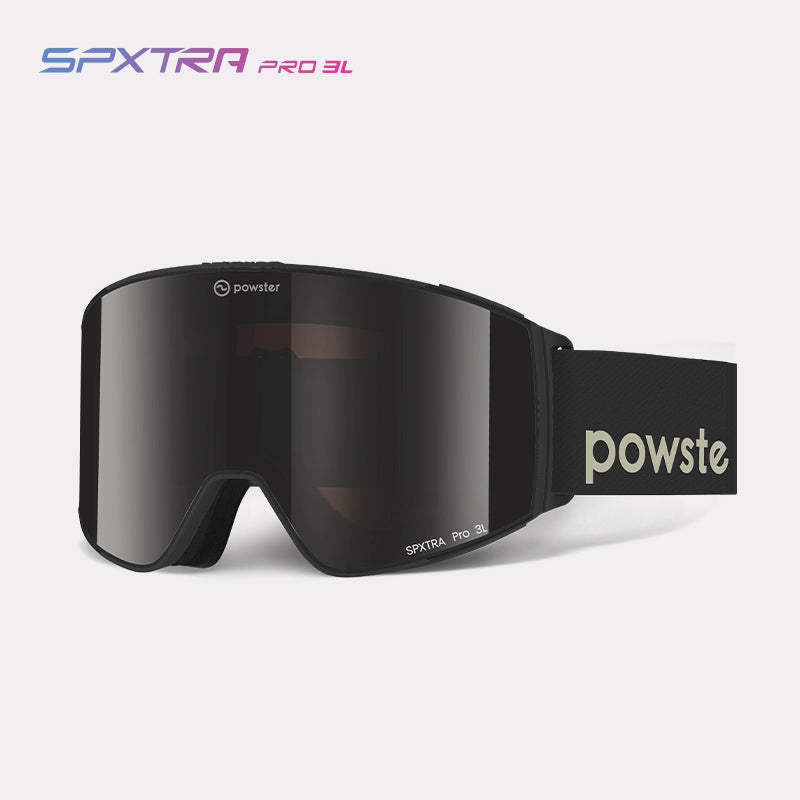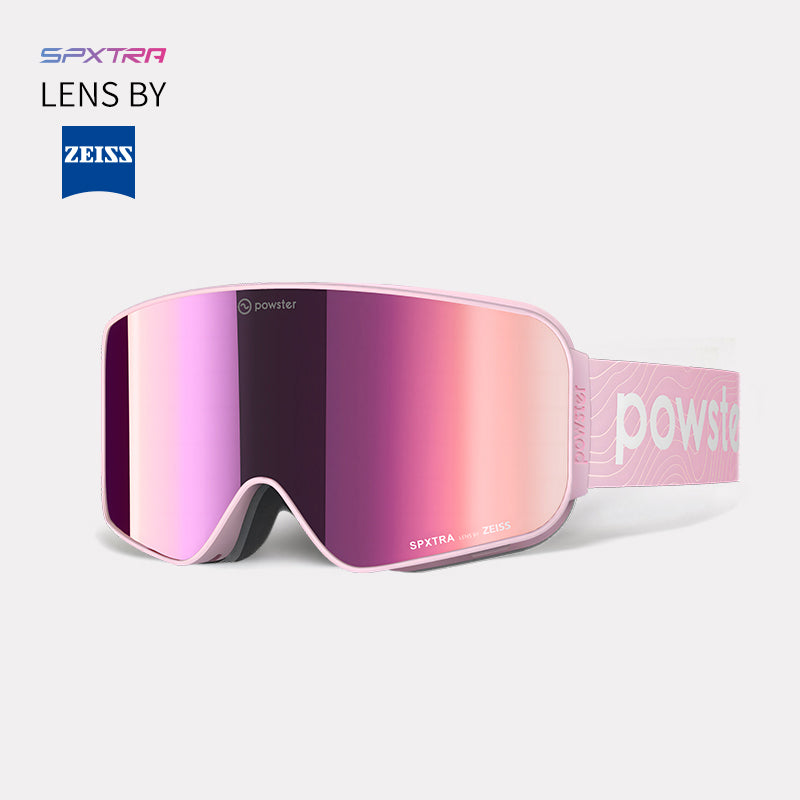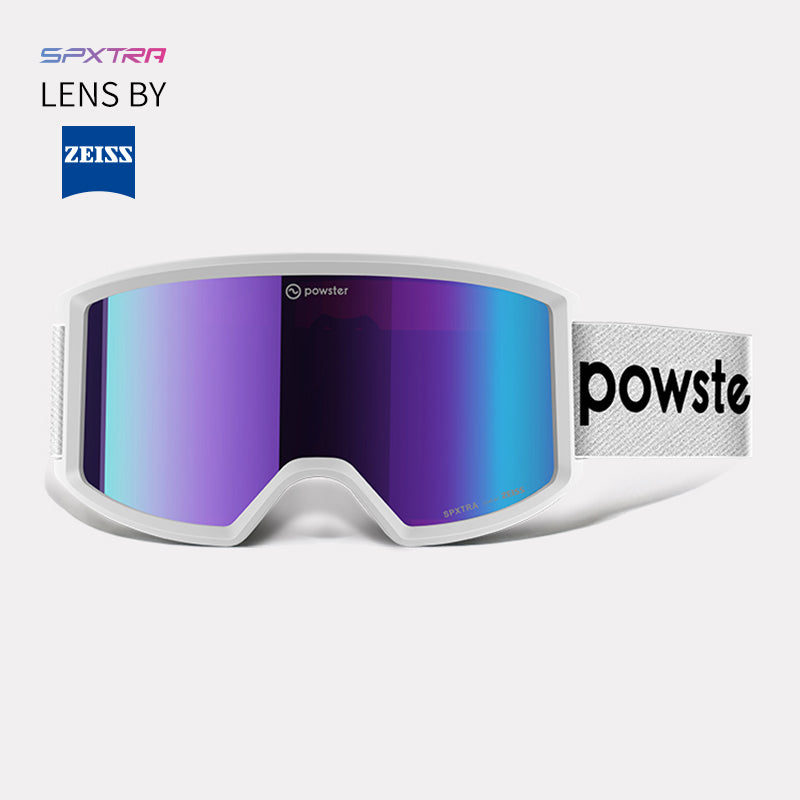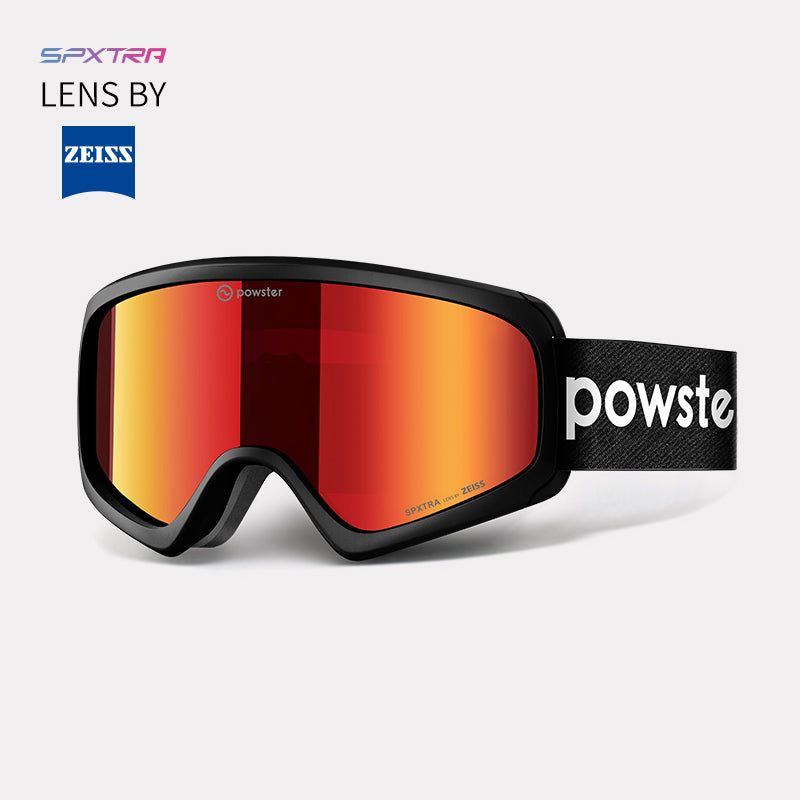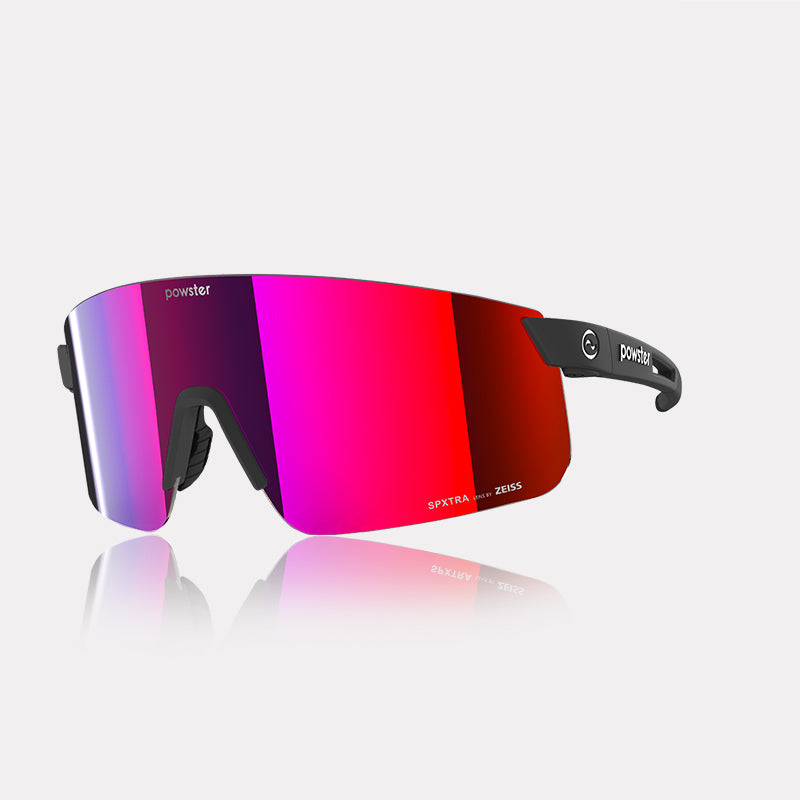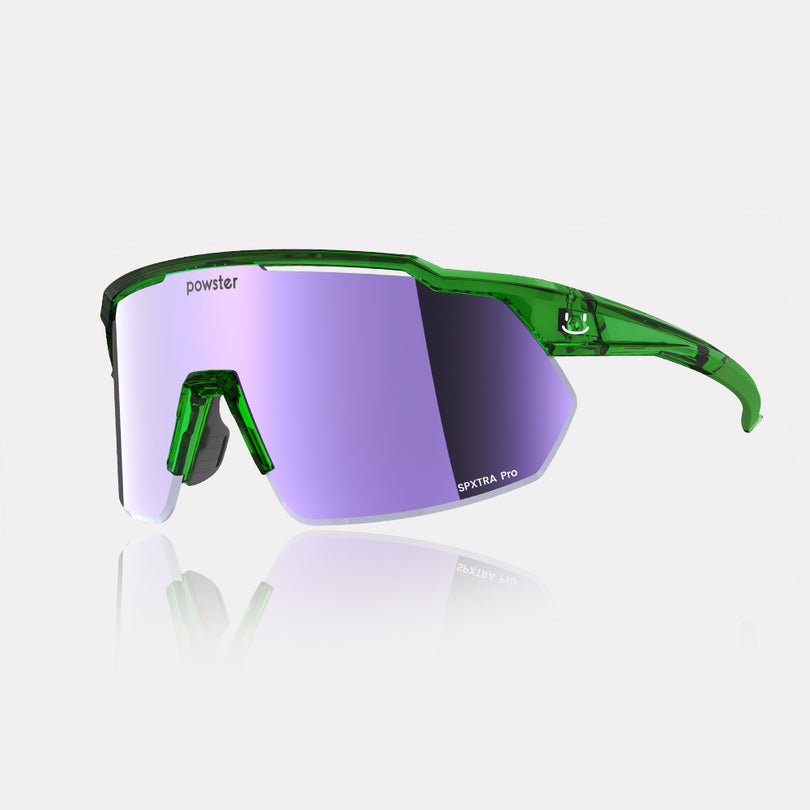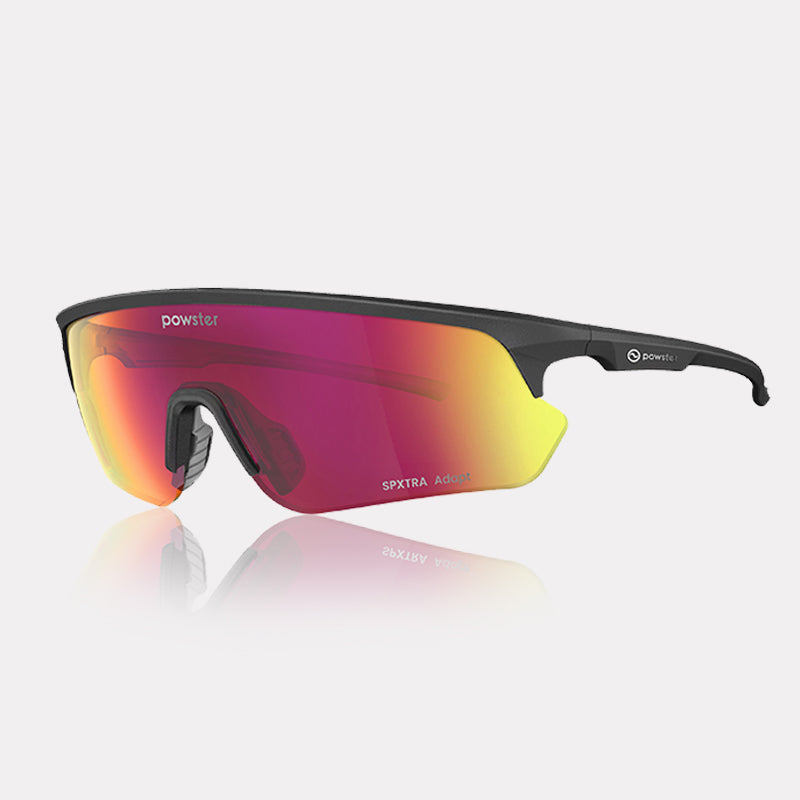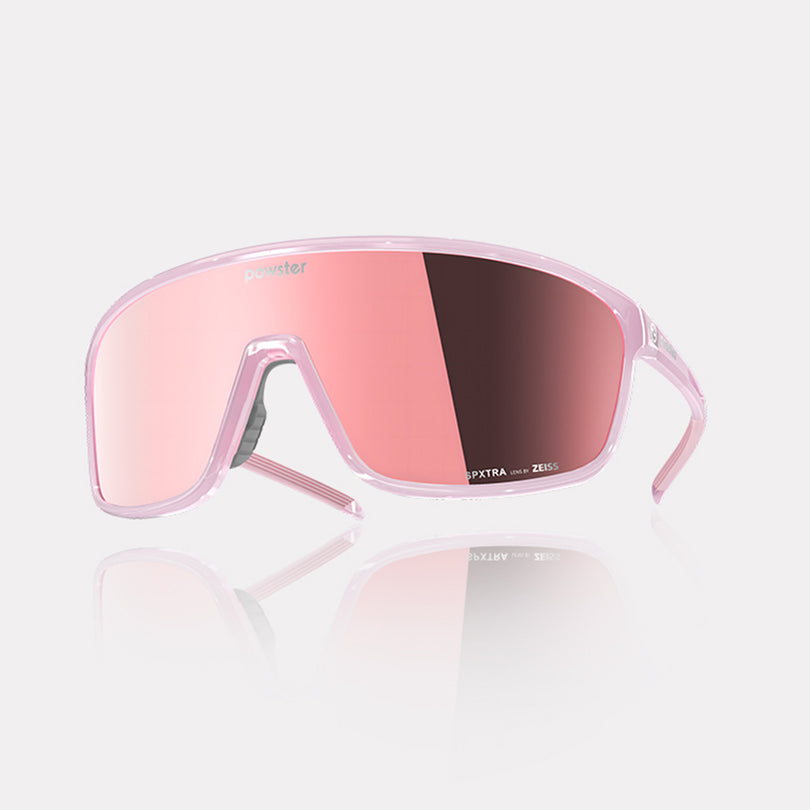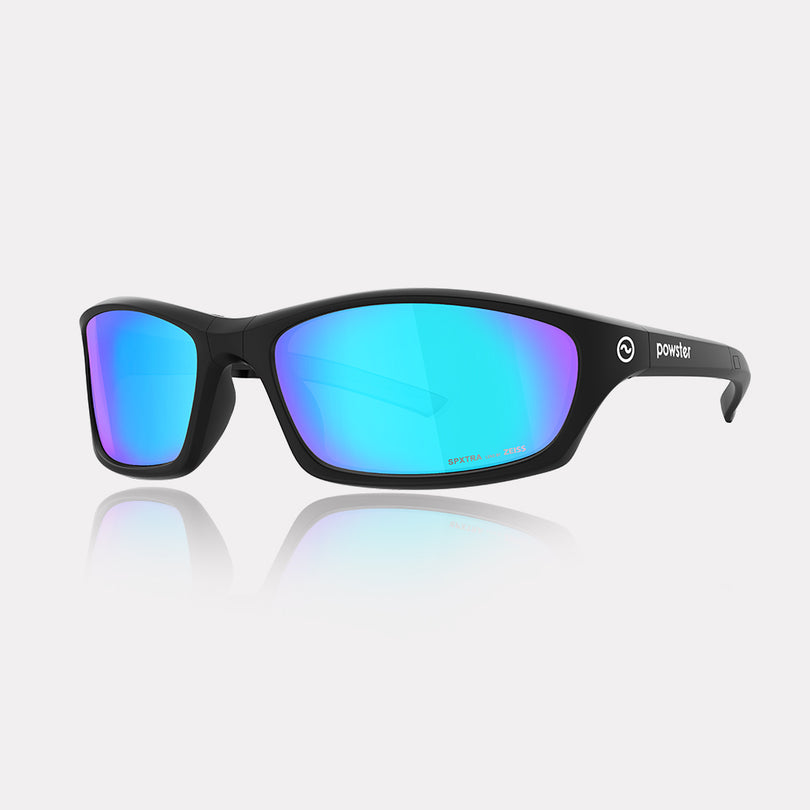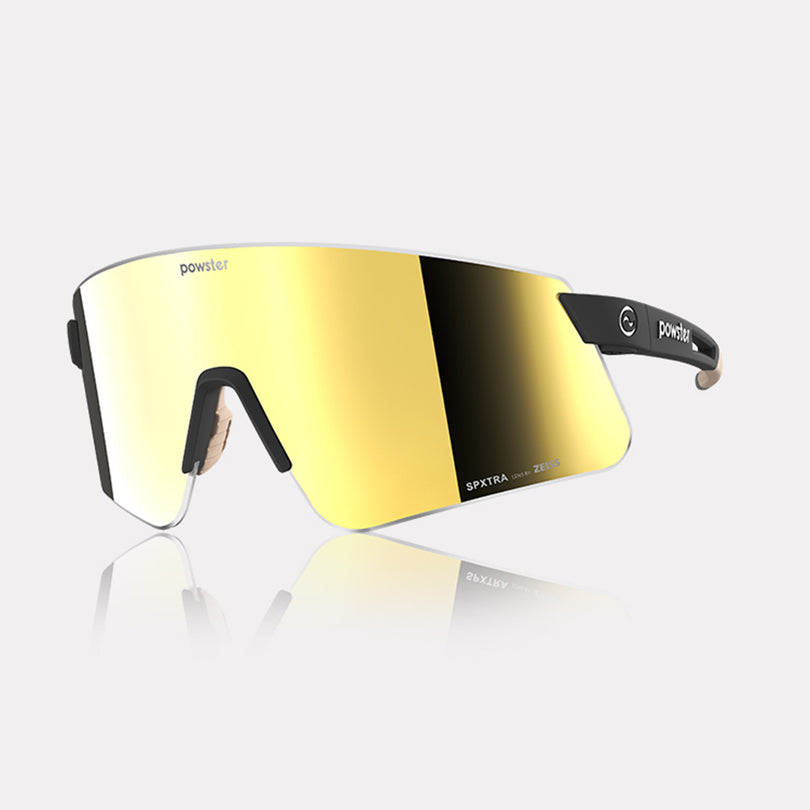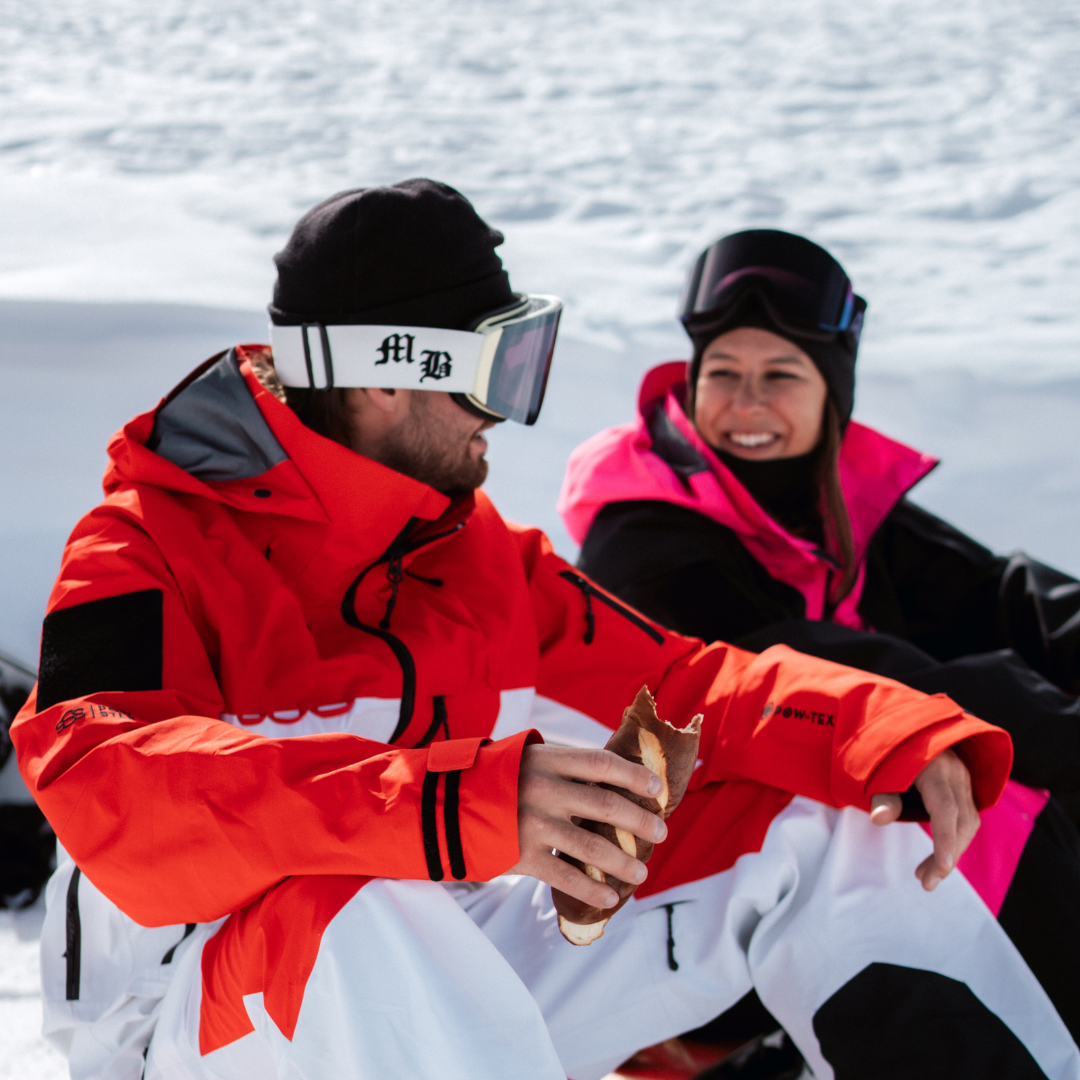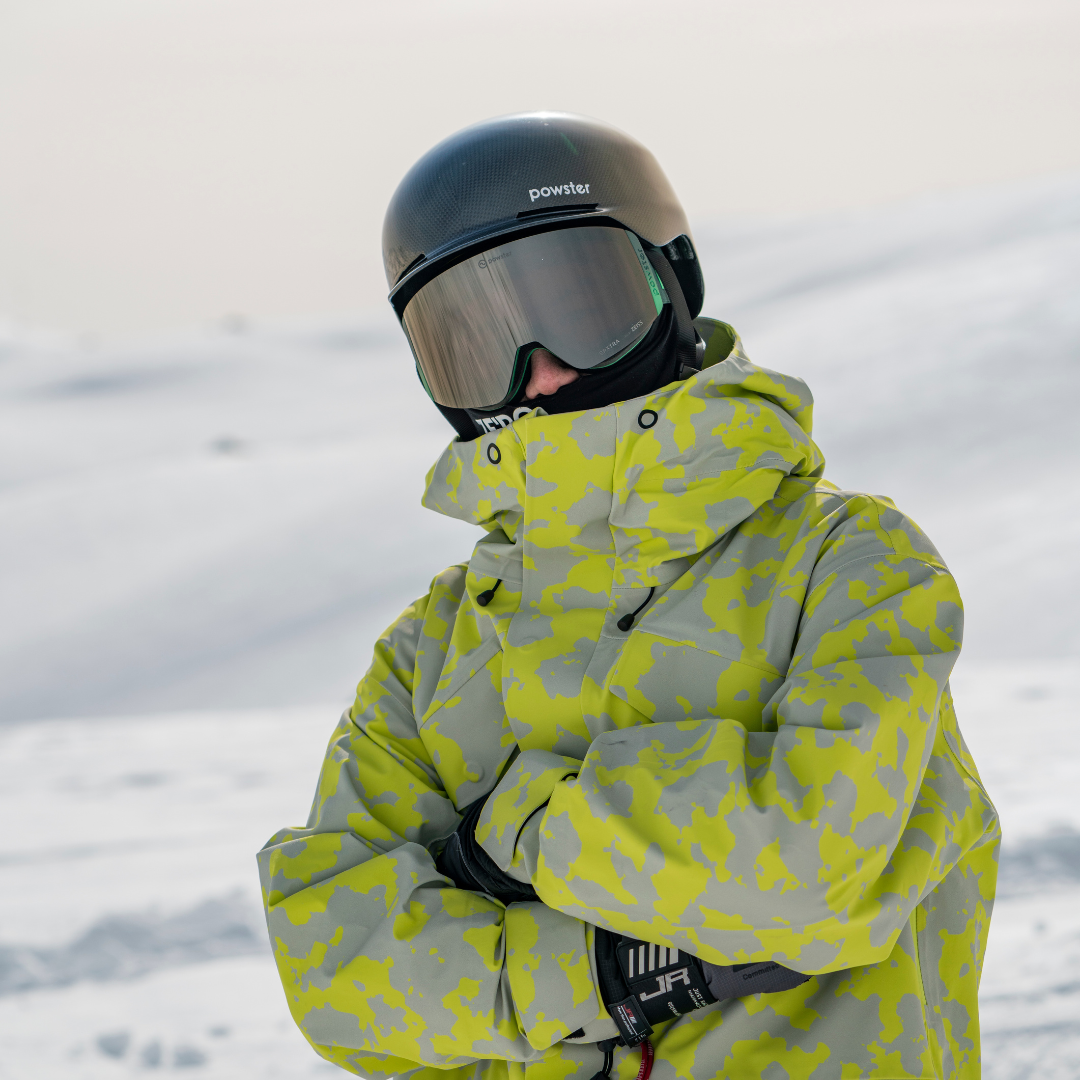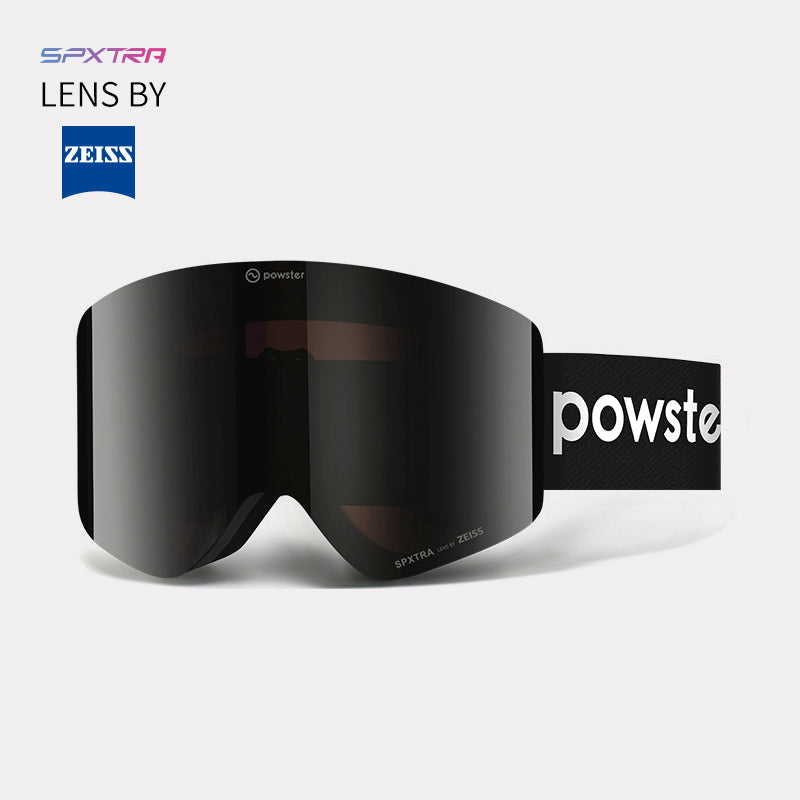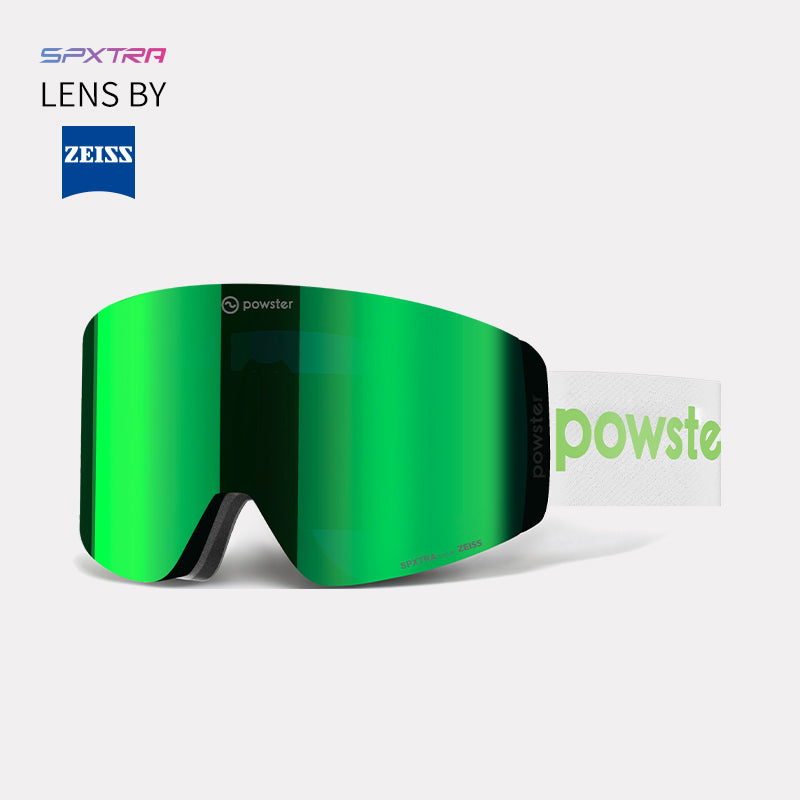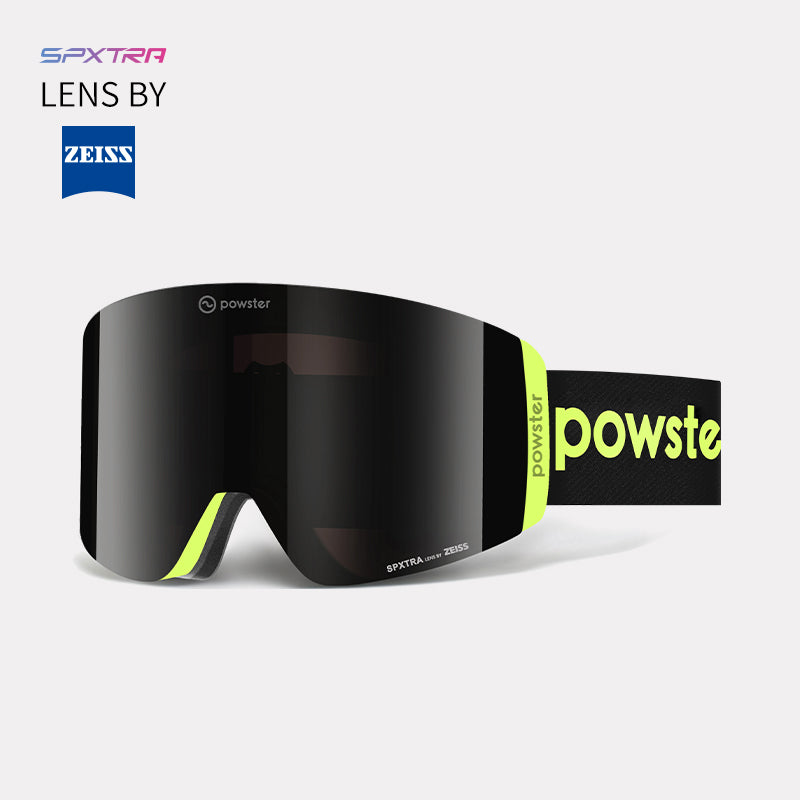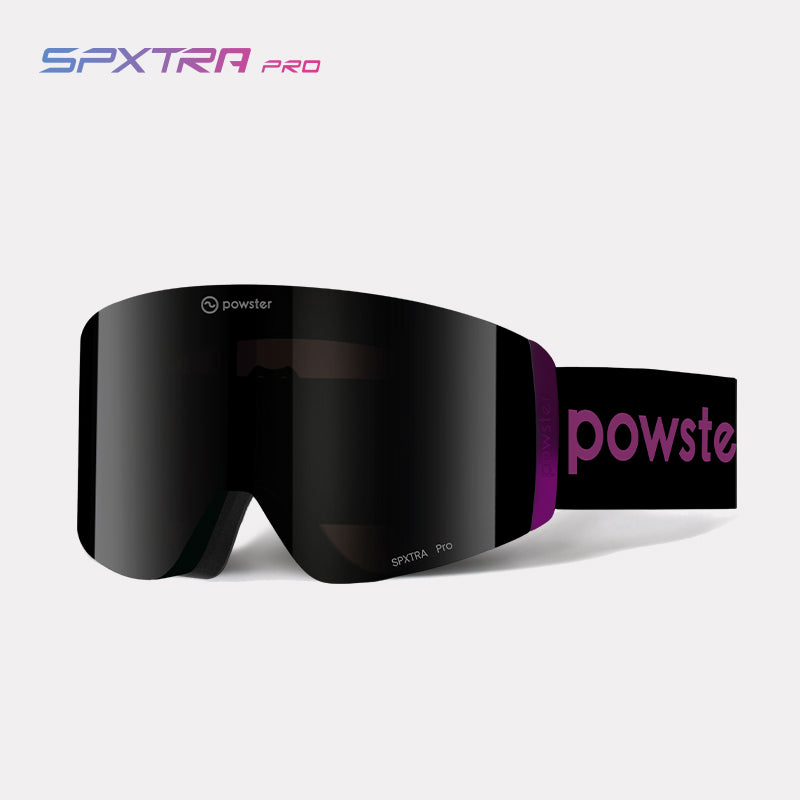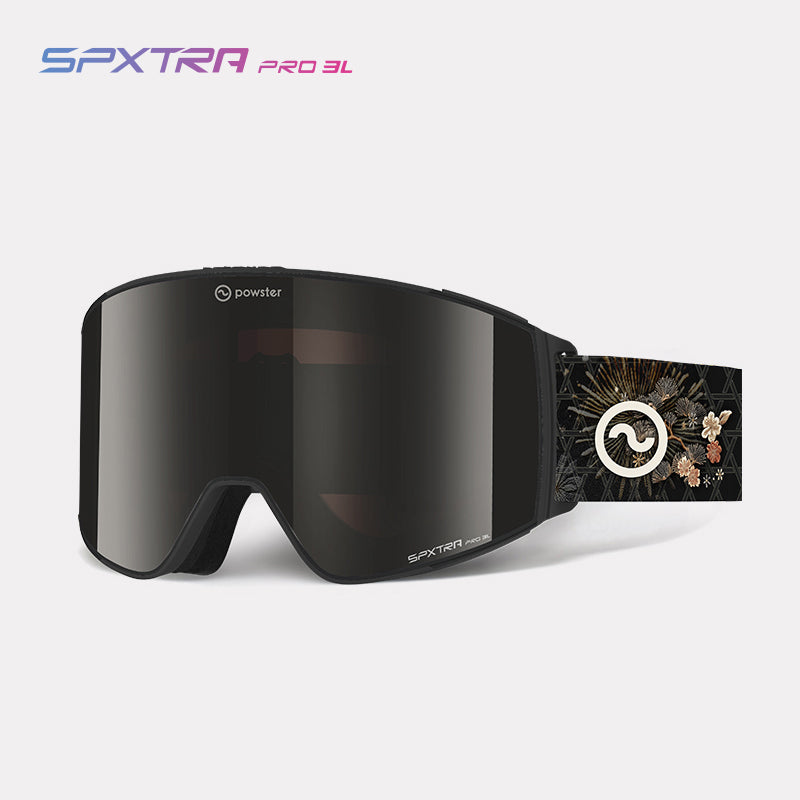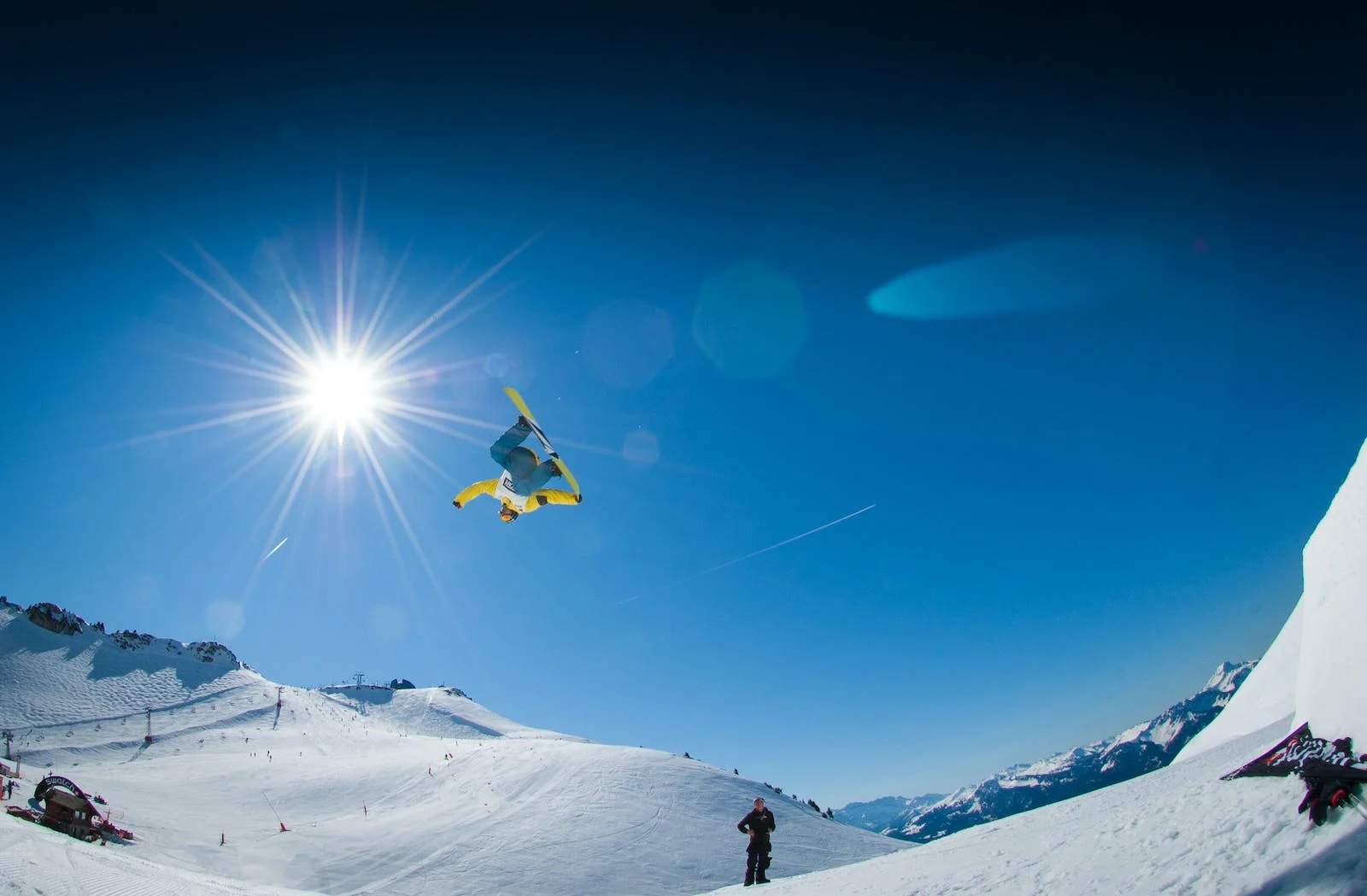For many, snowboarding and skiing aren’t just something you have a go at once and then give up on. It’s a lifestyle – and when you live and breathe the sport, you have to be kitted out with the best gear on the market so you can go in confident and ride those slopes with ease. Not only is it a way to make a statement by having snow fashion that stands out from the rest, but most importantly, it’s about choosing the right snowboarding clothing and accessories to enhance your performance and be truly great at what you do. With so much out there to choose from, we often get asked the question, “What colour goggles are best for snowboarding?” Well, luckily for you, we’re here to tell you everything you need to know to make the right decision the next time you go to purchase a pair.
With plenty of coloured lenses, like our Twilight Extra Wide Field Best Ski Goggles, you’ll be spoilt for choice. The lenses use Powster's SPXTRA™ technology with ZEISS collaboration that enhances colour contrast and provides better colour definition.
What Does VLT Mean for Goggles

An abbreviation of Visible Light Transmission, VLT is representative of the amount of light that passes through your goggles lenses and connects with your eyes. The purpose of polarised lenses is to limit the amount of VLT to protect your eyes, improve your vision and control the types of light you’re exposed to, like the Pulsar Bonus Lens Green Lens Ski Goggles Zeiss SPXTRA™ Lens. When buying snowboarding goggles, it’s key to look out for the VLT rating of the product to determine whether or not it’s going to be the right match for the activity you're doing, and the type of conditions you’ll be in. Basically, the higher the VLT percentage the more light is going to be let through your lenses and into your eyes.
Another way of judging how strong a lens is is by following the categories system. This system is described using either a rating of Cat 4 - Cat 0, with “Cat” standing for categories, or S4 - S0, with the ‘S’ standing for the word snow. This system works in the opposite way to the VLT rating system – the higher the number, the less light that will be getting into your eyes. So say for example you’re looking for a pair of goggles with a high category rating like an S4 or Cat 4 lens, they will be in the lowest VLT range of 25% or less.
Different Types of Conditions

A general rule, however, this can change based on the model and make, is that if you’re going to be skiing or snowboarding in really bright, sunny conditions more often than not, you’re going to want to be looking at a pair of goggles with a VLT rating of 25% or less. In partly cloudy, partly sunny conditions, a VLT rating of 25%-50% is most suitable, and in overcast, cloudy, and low-light conditions aim for 50% or higher. If in doubt, most brands offer guides on which goggle lens colours are going to work best for the type of activity and climate you’re going into.
While it’s always going to be a bit of a guessing game when it comes to the weather, polarised glasses, no matter what colour, are definitely going to be more useful in mountain conditions than if you were to wear clear lenses.
Goggle Lens Colours

Now we know how coloured goggles work and what to look out for when you’re purchasing a pair, let’s talk about the different colours of goggle lenses that you can choose from and the role they play. Essentially, each colour has a different purpose when it comes to controlling the amount of light, as well as how it reaches your eyes. It’s important to note that they all will be helpful in making it easier to see clearly when you’re riding – some just work better for certain conditions than others. On the bright side, many of our polarised goggles here at Powster come with interchangeable lenses, like the Asteroid Bonus Zeiss Lens Snowboarding Goggles.
Gray and Smoke Lenses
A great in-between tint both fashionably and in terms of their functionality, gray and smoke-coloured lenses help to provide true colour perception by reducing brightness from the sun and everything it reflects off. Ideal for bright and dim days, they’re a great choice for all general outdoor activities, like our Pulsar Leon Vockensperger Special Editions Bonus Zeiss Lens Silver Lens Ski Goggles.
Brown and Amber Lenses
The main benefit of brown and amber-coloured lenses is that they enhance contrast and depth perception to make everything seem a little brighter and a whole lot sharper. Because of this, they’re ideal for sports like skiing, biking, and hiking.
Yellow and Orange Lenses
Much like brown and amber lenses, yellow and orange lenses work to improve contrast and depth perception, but specifically in low-light conditions like cloudy or foggy weather. A view brightener, they’re great for activities like skiing and mountain biking.
Rose and Pink Lenses
Not only are they one of the prettier options in terms of coloured lenses, but rose and pink coloured lenses are actually super effective at reducing blue light rays and increasing contrast in low light conditions, as well as improving depth perception. Try them out on the mountain and see for yourself!
Single Lens Versus Interchangeable Lens

When it comes to comparing the pros and cons of a single lens as opposed to an interchangeable lens, a lot of it does come down to personal preference. With a pair of single-lens goggles, the upside is that you don’t have to worry about carrying around any additional weight, but it also means that if you’re prone to losing things, you’ve got yourself covered. Some snowboarders and skiers prefer to just use the one lens for all types of weather conditions, while others really rely on being able to swap them out depending on the different types of lighting they’re exposed to.
If you are looking for the freedom to switch between multiple lens options, many brands sell goggles that give you that option. At Powster, we have some great goggle products that come with a varying amount of interchangeable lenses so you can chop and change between them however you feel is best. If you’re looking for a pair that comes with two interchangeable lenses, we recommend the Supernova Balanced™ Toric Lens Best Ski Goggles, which come with one lens for cloudy days and one for sunny weather. Another great option is the Zenith Bonus Lens Best Ski Goggles Case Zeiss SPXTRA™ Pro 3L Lens, which comes with an extra lens for the same conditions, as well as an additional case. With a Magneto Magnetic Lens Change System, alternating between the two lenses has never been easier or more secure.
So there you have it, everything you need to know about what colour goggles are best for snowboarding based on their VLT rating and the conditions you’re planning on riding in – as well as their individual qualities like their ability to reduce blue light rays. While you may be distracted by the types of colours you are most drawn to, it is crucial to take all of these factors into consideration when buying your next pair of snowboarding goggles. At the same time, we know that overall, every coloured lens option has the power to control the amount of light that you see, so it’s almost always going to be better to have a pair than to have none at all.

